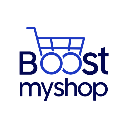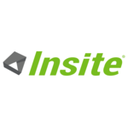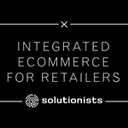eCommerce software: purchase guide
What is an e-commerce platform?
Definition
E-commerce software is a complete solution that makes it easy to manage the many components of the online sales process to provide an optimal shopping experience for customers. The platform specifically includes:
- The creation of an e-commerce site
- Payment service platforms
- Subscription management
- Customer service
Some of the main tools: Prestashop, Oxatis, Shopify, Magento
How it works
E-commerce software allows you to create your e-commerce site without using a very costly external service provider. All the IT tools necessary to create your shop are accessible from the tool's web interface:
- An e-commerce CMS to create your shop
- An order management software: payments, stocks and deliveries
- A solution for managing customer accounts and loyalty programs
- A tool for managing memos and notifications
- A communication tool: livechat, chatbot
- Etc.
In the form of configurable plug-ins, you select the feature sets needed to manage your online business and add more according to your needs.
These complete solutions support you throughout the entire process: from the first mock-up, to the online launch and maintenance of your platform.
Publishers generally include web hosting of data and site outsourcing. However, you can choose a cloud host (public, private).
What are the main features of an e-commerce platform?
Create an online shop
CMS (content management systems) as Joomla allow you to create a website. CMS E-commerce allow you to create or transform your website into an online store. The tool's features include:
- The online publication of references: writing a description, SEO optimization (natural referencing), photo, import of a catalogue
- The creation of a showcase site from customizable blocks, a template (responsive design) imported or from the tool's library
- The definition of a tree structure to organize the site's content
- The implementation of a search engine with operating rules, filters and sorting
Web design tools allow you to improve the ergonomics of the site, your brand image and your e-reputation.
Other modules manage all the key steps of the conversion channel:
- The payment service and the different means proposed
- The customer account and associated loyalty programs
- Customer service (and technical support) with the setting up of a chatbot, a notice and feedback manager, a blog or a newsletter
Manage your e-commerce site
On his back office, the e-merchant has a dashboard on which he obtains graphs, statistics and other performance indicators (KPIs) in order to analyse his e-business:
- It follows the user path page by page, identifies those that discourage Internet users
- It analyzes its traffic and sales
- It segments its audience
- Etc.
Other functionalities allow you to manage the activity of your site:
- Update your catalogue
- Manage promotional campaigns: by product or family, from a certain amount, etc.
- Manage stocks or dropshipping
- Manage deliveries: maximum dimensions per package, delivery options, delivery area by carrier, etc.
Interoperability with IT tools
Integrated into your information system, the merchant site allows you to simplify and centralize certain processes:
- With your ERP you manage your stocks and warehouses, automate your accounting, manage the sending of invoices, your product information (PIM) etc.
- With your CRM, you synchronize your customer file and automate your marketing actions (emailing for example)
- With your marketplace, you can update your product sheets online
- With your social networks, you unify the management of your promotional campaigns
- Etc.
Who uses an e-commerce platform in SaaS?
Mostly popular in BtoC, online sales are nowadays essential in BtoB. All structures (Start up, VSE, SME, large group), with or without physical stores, are impacted. All sectors are concerned: primary, secondary, tertiary.
Internally, these solutions are mainly used for webmarketing services, digital communication and other e-commerce managers who manage the catalogue, digital strategy and use marketing tools.
Small structures will be able to use a service provider (Web agency) who will create the e-commerce site based on specifications.
Why use an online e-commerce platform?
The online sales site allows all merchants to quickly create an online store without constraints. However, it has some disadvantages.
Advantages
- With an optimized sales site, you improve customer loyalty and improve your conversion rates
- Some plug-ins like WooCommerce allow you to transform your site into an e-commerce store
- Possibility to manage several sites on an interface with the "multi-shops" function
- The scalability of the solutions anticipates new consumption patterns. Lately, the use of virtual reality to allow Internet users to "test" the product
- Easy to learn software that does not require any special computer knowledge
- Fully customizable software that allows you to create a 100% custom shop: theme, catalog, payment, shipping, etc.
- In most cases, the platforms have a quality support service that supports you in the development of your shop
- Application security (SSL certificate, etc.) and service availability (SLA)
Disadvantages
- Managing several hundred references manually can be difficult.
- Not all online sales platforms are SEO friendly. Not being visible on search engines can quickly become problematic
- Quite limited functionalities in terms of creating and maintaining a blog. Difficult to compete with Wordpress
How to choose your e-commerce platform?
Choosing the right e-commerce solution such as OGUST Selfservice, Yourcegid Retail Y2 On Demand or ShopModule requires a clear understanding of what you need. A Wordpress site can be enough for a small shop. If you are considering complex features and high sales volumes then you need a more appropriate tool. This should allow you to connect with other ecommerce sites to distribute your product catalogue (cdiscount, amazon, ebay, etc.). It must be able to manage the shopping cart, online payment, and invoicing.
Find all our articles in our guide on e-commerce.



















